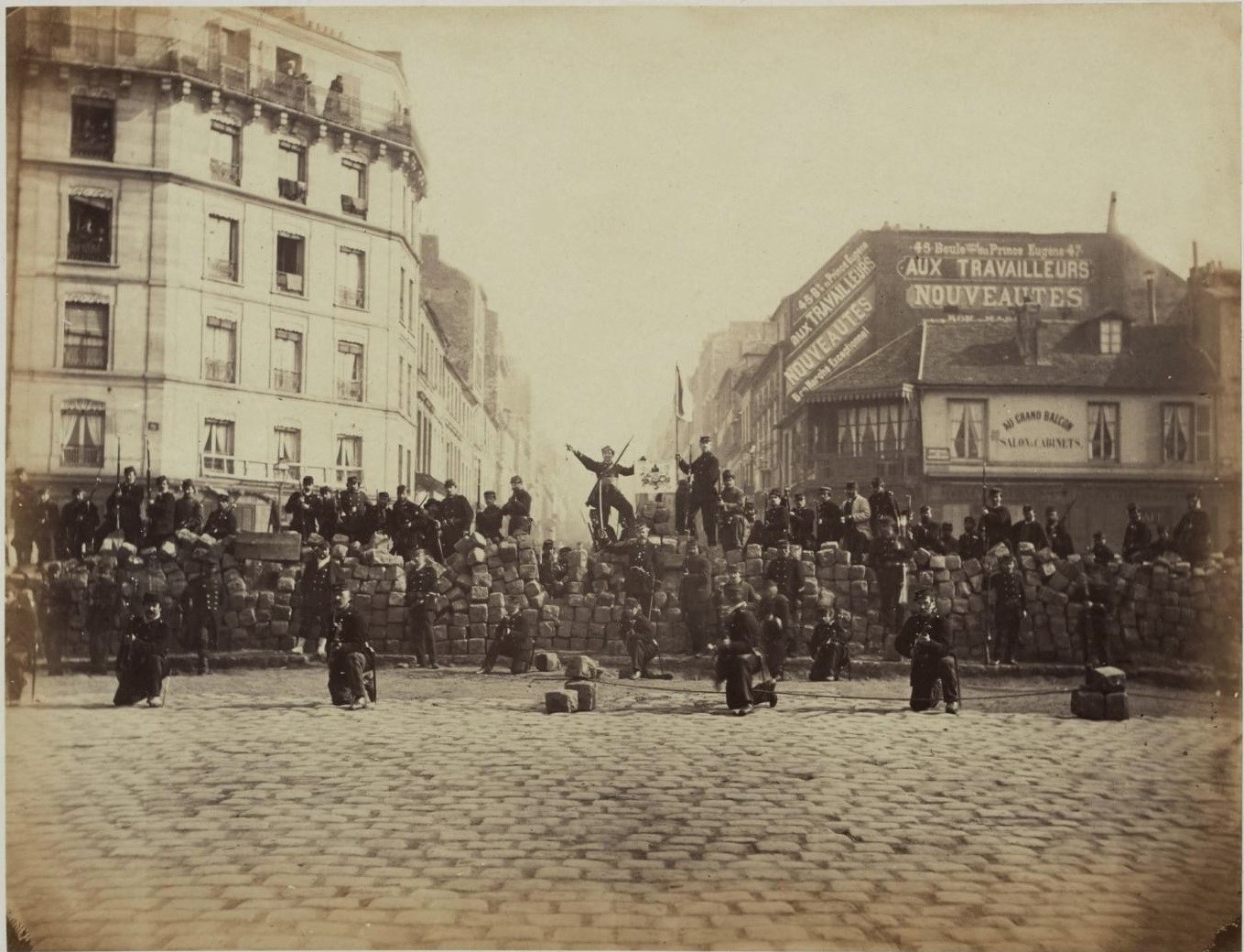The Paris Commune was a revolutionary polity of 2 million that ruled Paris from March 18 to May 28, 1871. It was established in the context of the Franco-Prussian War and represented a moment of radical experimentation in governance and social organisation.
The Commune was characterised by its focus on direct democracy and worker self-management. Its members sought to create a new social order based on principles of popular sovereignty and community empowerment, challenging the traditional power structures of the French government and society. To this end there was an attempt within the commune to overcome the separation between society and public authority, and abolish the state. Neighbourhood councils and producer associations were formed, electing moderately paid delegates subject to immediate recall, and instituting basic reforms like free access to public education, the end of the death penalty, the granting of citizenship to immigrants, the abolition of the standing army (replaced by workers militias), requisition of vacant houses and the reopening of workplaces under worker control through cooperatives. To those that founded the commune, it was but the first step towards a universal Commune of Communes encompassing the entire globe and uniting all peoples in a confederacy of liberatory democracies.
In total, around 43 worker cooperatives were formed, although other capitalist businesses with bosses still existed alongside these- there was no expropriation of the bosses.
The experience of the commune changed Marx’s views in some ways. Whilst the 1848 Communist manifesto called for greater centralisation and a republican state, after the commune Marx and Engels reached some similar conclusions to the anarchists. In answer to Bakunin’s provocation that given “the Germans number around forty million. Will for example all forty million be member of the government?” Marx replies “Certainly! Since the whole thing begins with the self-government of the commune.” In 1875, writing to propose changes to the German Social Democratic Party on the experience of the Paris commune, Engels wrote “The whole talk about the state should be dropped, especially since the Commune, which was no longer a state in the proper sense of the word….We would therefore propose replacing state everywhere by Gemeinwesen [community], a good old German word which can very well take the place of the French word commune”
Bakunin for his part saw in the Commune “a bold, clearly formulated negation of the state”.
Despite its many achievements, the Commune was ultimately crushed by French government forces and its leaders were executed or imprisoned. 20,000 of the Communards were murdered, 38,000 were arrested and 7,000 were deported. However, the Commune remains a symbol and a source of inspiration for social movements around the world. To Murray Bookchin, the answer to the problems of the 21st century could be found in the revolutionary project that originated in the Paris Commune. The ideal of a confederation of self-governing regions, operating within ecological limits and based on communal ownership, remains as pertinent today as ever before, particularly in the face of capitalism’s devastating impact on the essentials of human life due to the ecological crisis.
